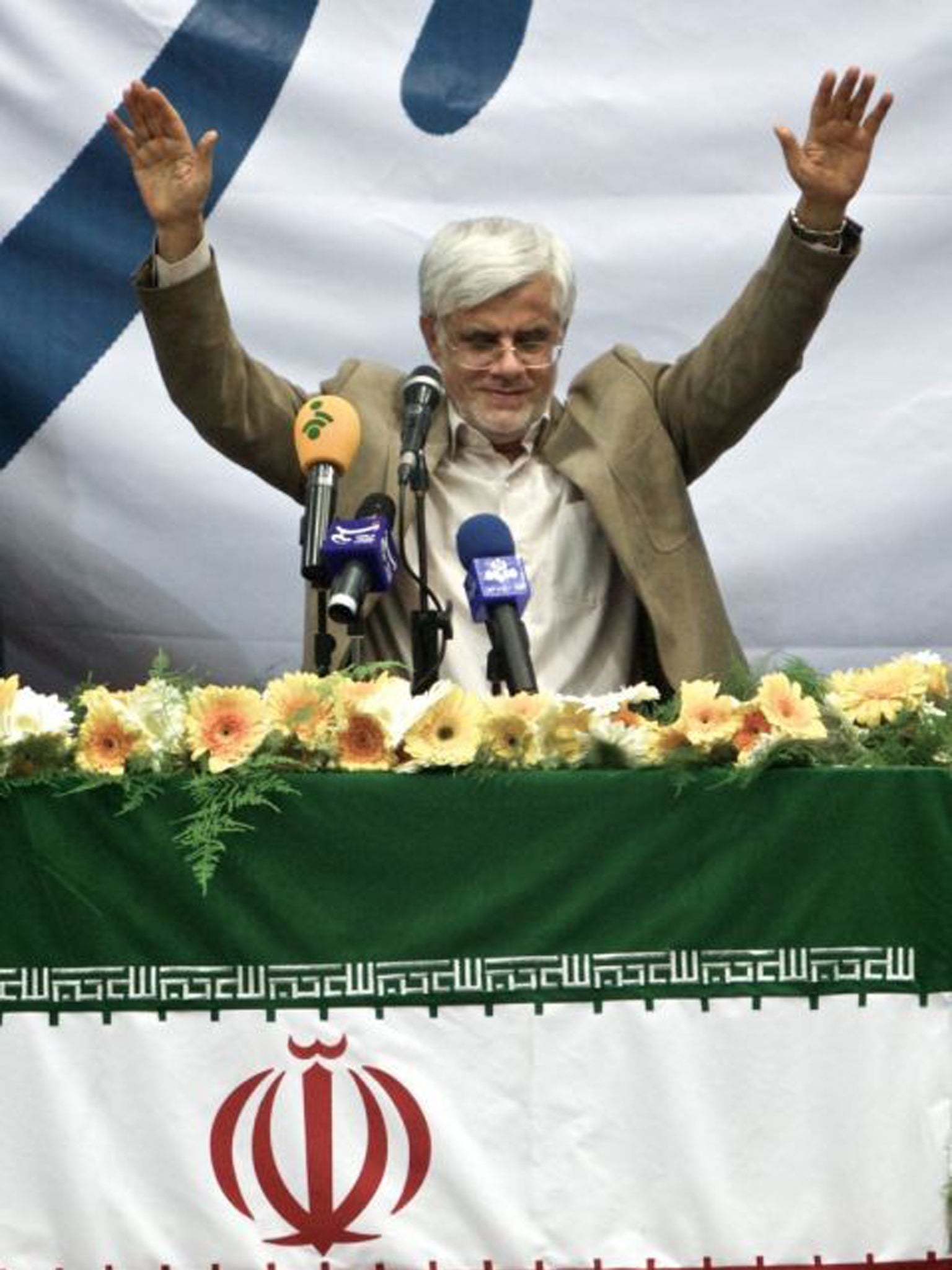Sole reformist candidate Mohammad Reza Aref withdraws from Iran elections to elect successor to Mahmoud Ahmadinejad
Liberals and moderates in the Islamic Republic left with few option in presidential race

The only candidate standing on a reformist platform in this week’s presidential elections withdrew from the race, after garnering little support among leading moderates.
Mohammad Reza Aref’s decision to stand down leaves just six men on the ballot paper for Friday’s election, which will choose a successor to the hardline Mahmoud Ahmadinejad. All six have been approved by Iran’s Guardian Council, which is loyal to the country’s Supreme Leader, Ayatollah Ali Khamenei.
Mr Aref’s withdrawal means that liberals and moderates in Iran, many of whom took part in demonstrations after the last presidential election in 2009 in which Mr Ahmadinejad was returned to power despite disputed results, now have few options. Many are likely to throw their support behind Hassan Rohani, who is considered more of a moderate than the other five remaining candidates.
Many argue that the election is unlikely to produce any real change in Iran. Each of the six candidates are considered loyal to Mr Khamenei, and even the election of Mr Rohani – a cleric and former deputy speaker in the Iranian parliament – is unlikely to alter Iranian foreign policy. The Supreme Leader has ultimate control over Iran’s nuclear policy, for example, which many in the West say is designed on producing a nuclear weapon. Tehran says the programme is for peaceful means.
Mr Aref is understood to have withdrawn after speaking to former president Mohammad Khatami, who is now considered a leader of Iran’s moderates movement. Mr Aref had led a lacklustre campaign and had been reluctant to stand at all. He had maintained a low profile, despite the poll being just days away and had stated that he would have stepped aside had Mr Khatami – who won presidential elections in 1997 and 2001- decided to run again.
“In consideration of Mr Khatami's explicit opinion, and the experiences of two past presidential elections, I declare my withdrawal from the election campaign,” he said.
Mr Khatami decided against standing and another leading liberal, and former president, Akbar Hashemi Rafsanjani was barred from standing. In all the Guardian Council told nearly 800 candidates they were illegible, leaving just eight originally approved men to contest the campaign. One hardline candidate - Gholam Ali Haddad Adel – withdrew on Monday, urging his limited number of supporters to back a conservative to win the election.
Friday’s ballot is unlikely to produce a clear winner, forcing a second round of voting on 21 June.
Officials will be hoping that the election this time manages to avoid scenes similar to those in 2009 when thousands took to the streets to demand that Mr Ahmadinejad’s victory be annulled. The demonstrations, which became known as the Green Movement, broke out when it was declared the Mr Ahmadinejad had received two-thirds of the popular vote – a figure that some moderates found unbelievable. Chanting slogan such as, “death to the dictator” and “where is our vote” protesters gathered in a number of major cities. Several were subsequently killed in a crackdown by the security forces.
A number of political leaders, including potential candidates who are close to Mr Ahmadinejad, have been prevented from standing this time. The president has become increasingly unpopular among officials, especially given biting economic sanctions which have been imposed in response to the nuclear programme. Elected in 2005 and 2009, Mr Ahmadinejad is barred from standing this time.
Join our commenting forum
Join thought-provoking conversations, follow other Independent readers and see their replies
Comments
Bookmark popover
Removed from bookmarks